As a dedicated cat parent, you do everything in your power to ensure your feline friend lives a happy and healthy life. You feed them the best food, provide cozy sleeping spots, and shower them with affection. But, have you ever considered their dental health?
Dental disease is one of the most common issues our feline friends face, and it often goes unnoticed! In this post, we’ll discuss the importance of cat dental care and maintaining your cat’s oral health, providing you with the insight and tools to do so effectively. From preventing dental disease to practical tips on brushing your cat’s teeth and selecting the right dental products, we’ve got it all covered.
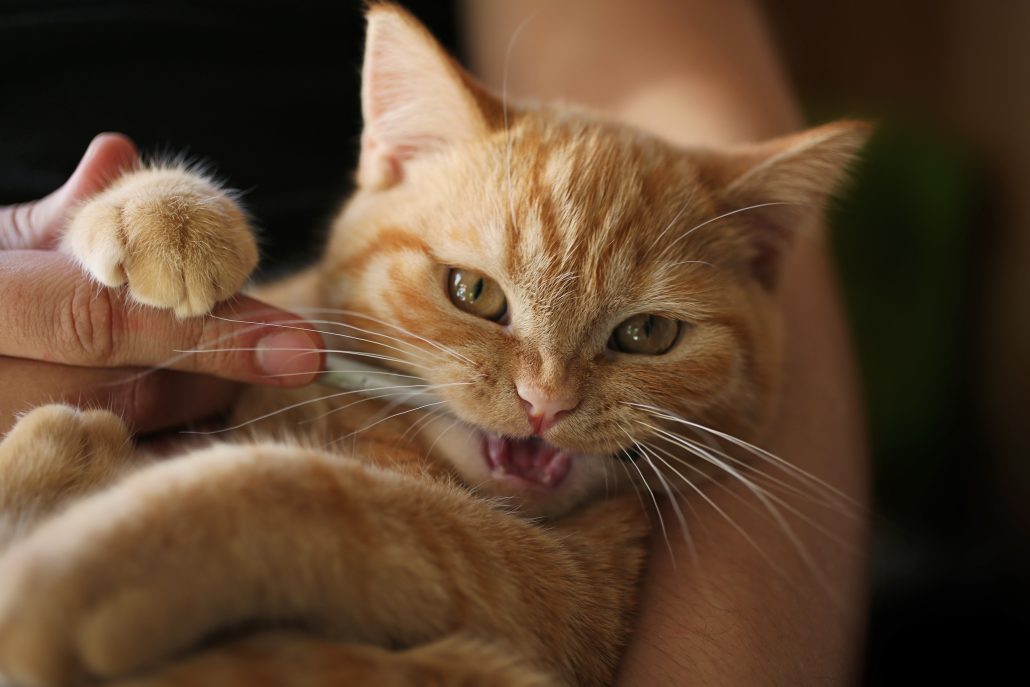
The Importance of Cat Dental Care
Cats are known for their independence, agility, and curiosity. They often captivate us with their charming personalities and playful antics. However, many pet owners underestimate the significance of proper dental care for their cats.
- Prevent Pain and Discomfort: Dental problems can be painful for cats, affecting their ability to eat, groom themselves, and enjoy their daily activities. Ignoring these issues can lead to suffering and a decreased quality of life for your furry friend.
- Promote Good Overall Health: Cat dental issues can have a cascading effect on their overall health. Untreated dental problems can lead to more serious health concerns, including heart disease and kidney issues. Proper dental care can help prevent these complications.
- Avoid Costly Veterinary Bills: Regular dental care can save you money in the long run. Dental cleanings and preventive measures are more affordable than treating advanced dental diseases and their associated health problems.
- Longer and Happier Life: Ultimately, the most important part of regular dental care is their overall health and happiness. By taking care of their oral health you’re helping them enjoy a longer and more comfortable life!
Signs & Symptoms of Dental Problems in Cats
Cats are masters at hiding pain, which makes it crucial for pet parents to be vigilant in spotting signs of dental problems. Some common indicators of dental issues include:
- Weightloss: If your cat experiences unexplained weight loss, it could be a sign of dental issues affecting their ability to eat comfortably.
- Decreased interest in eating dry food: Cats with dental problems may avoid dry food due to the discomfort caused by chewing.
- Decreased interest in hard treats: A reluctance to indulge in hard treats may indicate oral pain or sensitivity.
- Chewing more slowly than usual: Your cat may eat more slowly to avoid pain and discomfort from dental issues
- Dropping food from the mouth while eating: Dental issues can lead to difficulty in holding and chewing food, causing spills.
- Excessive drooling: If you notice your cat drooling more than usual, it may be a response to dental pain or irritation.
- Pawing at the mouth: Cats might paw at their mouth as a way of expressing discomfort or trying to alleviate pain.
- Resistance to having the face or mouth touched: Cats that resist having their face or mouth touched may be trying to protect a painful area.
- Blood-tinged saliva, treats or toys: The presence of blood in saliva, treats, or toys is a sign of potential wounds or infections.
- Yellow/brown tartar on the teeth: Tartar buildup on the teeth is a visible indication of dental problems.
- Bad breath: Foul-smelling breath, also known as halitosis, can be a sign of dental disease in cats.
- Tooth loss: Tooth loss can be an indication of tooth decay.
Cat Dental Care for Senior Cats
As cats age, their dental needs change. Senior cats are more prone to dental problems, such as tooth loss and gum disease. Therefore, it is crucial to pay extra attention to their oral health as they grow older. Regular dental check-ups become even more important, and your veterinarian may recommend more frequent cleanings.
Additionally, senior cats may benefit from dental diets specially formulated to promote dental health. These diets often have a larger kibble size or a unique texture that helps reduce plaque and tartar buildup.
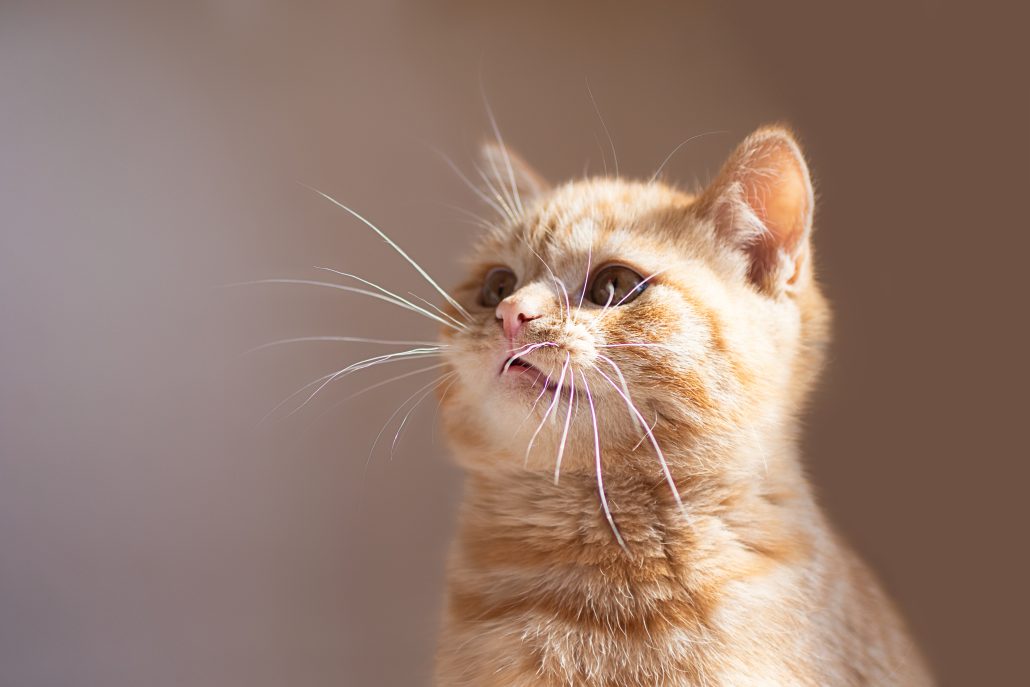
Preventing Problems With Cat Dental Care
Cats are known for their independence and self-sufficiency, but when it comes to their dental health, they need a little help from their pet parents! When it comes to your feline friend’s dental health, prevention is always better than cure. Preventing dental problems in cats is far easier, more cost-effective and less stressful than treating issues that have already arisen. Here’s how to ensure your cat’s pearly whites stay in tip-top condition.
Regular Dental Check-Ups
Regular dental check-ups at your veterinarian are the foundation of preventive dental care for cats. During these visits, your vet will examine your cat’s mouth, teeth, and gums for any signs of dental problems.
Early detection of issues is vital and allows for prompt intervention, preventing minor problems from evolving into major dental concerns! Additionally, your vet can recommend appropriate treatments, such as dental cleanings or dietary changes, to address any emerging concerns.
Healthy Diet
Your cat’s diet plays a significant role in their dental health. Feeding them a balanced diet that supports their oral hygiene can help prevent dental problems. Dental-specific cat food is specially formulated to reduce plaque and tartar buildup, often through the action of abrasive kibbles that scrub the teeth as your cat chews. These diets may also contain ingredients that promote gum health. However, it is always recommended that you consult with your veterinarian when changing the diet of your pet.
Dental Chews and Toys
Dental chews and toys are excellent tools for maintaining your cat’s dental health. These products are designed to stimulate chewing, which can help reduce the accumulation of plaque and tartar on your cat’s teeth.
It is important to remember that, while beneficial, dental toys should not be a substitute for daily brushing or routine cleanings. Cats typically only chew on one side of their mouth, so they may only be treating that one area.
Read More: The Importance Of Dental Care For Pets
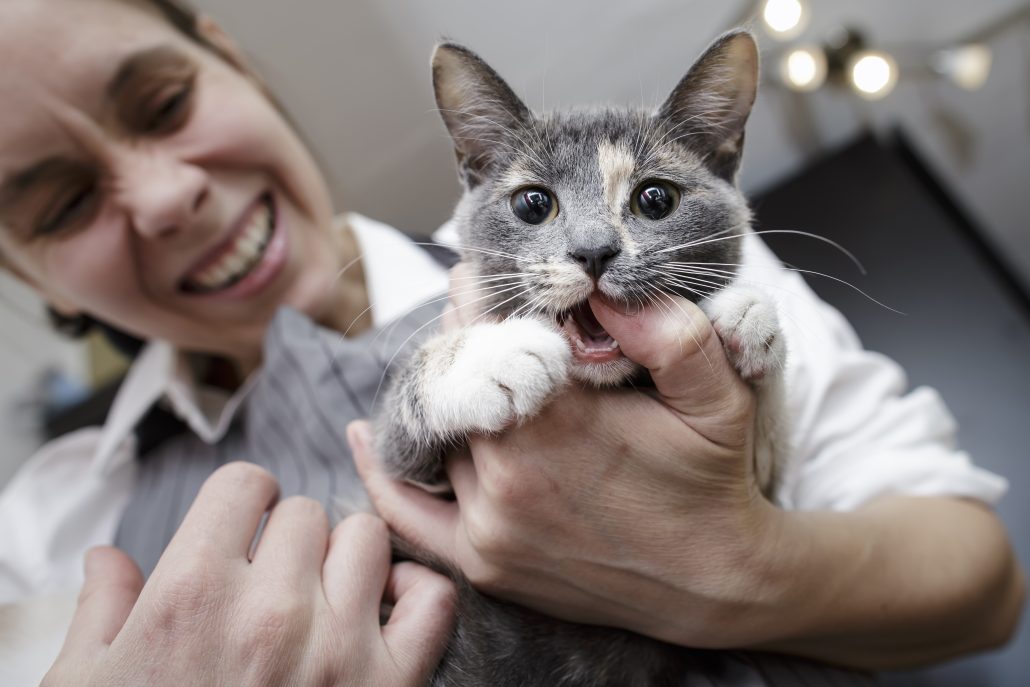
Brushing Your Cat’s Teeth
Brushing your cat’s teeth is arguably the most important factor for cat dental care. It allows you to physically remove plaque and food particles that can lead to dental issues. While it may require some patience and training to get your cat comfortable with this routine, it’s one of the most effective ways to prevent dental problems.
Professional Dental Cleanings
Professional dental cleanings performed by your veterinarian are vital for maintaining your cat’s dental health. These cleanings involve removing tartar and plaque buildup that may be difficult to reach during everyday cleanings.
Regular Monitoring
Much like a dental checkup, regular monitoring can help safeguard your cat’s oral health. By keeping a close watch on your feline companion’s mouth, you can detect any early signs of trouble. Look for red or inflamed gums, loose or broken teeth, or any unusual growths within their oral cavity.
If you notice any of these symptoms, it’s imperative to seek the advice of your vet. This proactive approach can make a big difference in preventing dental problems from advancing into more severe and painful conditions.
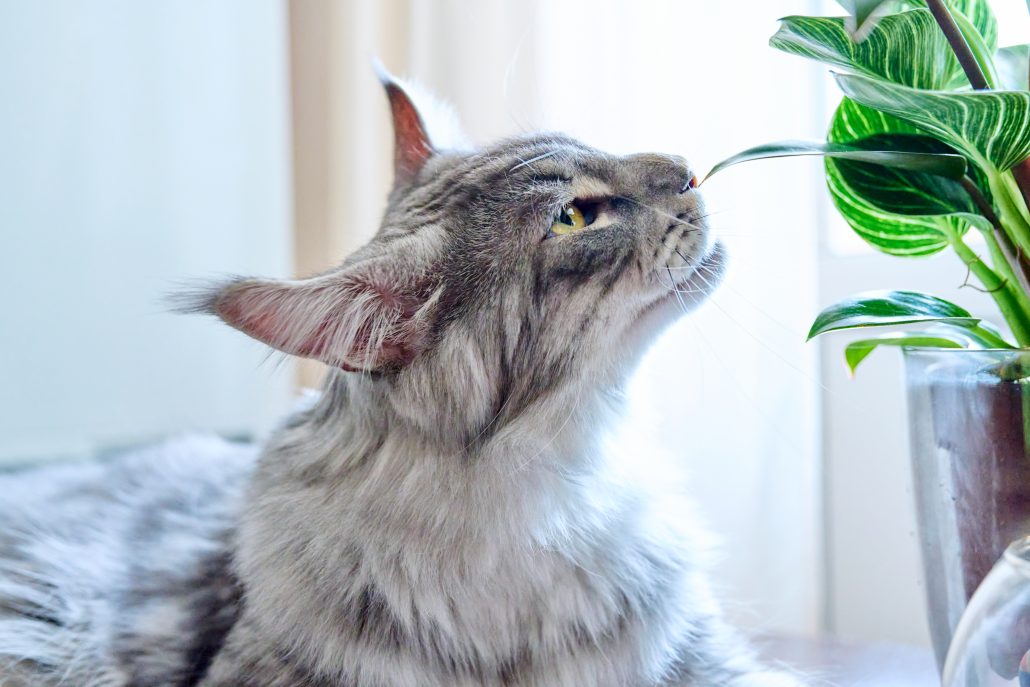
Tips To Brushing Your Cat’s Teeth
Brushing your cat’s teeth may seem like a daunting task, but with patience and practice, it can become an easy routine part of their everyday care!
- Start Slowly: If your cat is not used to tooth brushing, introduce the toothbrush and toothpaste gradually. Let them sniff and explore these new items to reduce their apprehension.
- Choose the Right Tools: Invest in a cat-specific toothbrush and toothpaste. Cat toothbrushes are designed to fit their mouth comfortably, and toothpaste is formulated to be safe if ingested.
- Be Patient: Understand that your cat may not readily accept having their teeth brushed. Be patient and gentle, allowing them to acclimate to the process at their own pace.
- Establish a Routine: Consistency is key! Aim to brush your cat’s teeth at the same time each day. This routine helps them become accustomed to the process.
- Positive Reinforcement: Reward your cat with treats or praise after each successful brushing session. Positive reinforcement encourages cooperation.
- Focus on the Gums: Pay attention to the gum line when brushing. Plaque tends to accumulate there, contributing to dental problems.
- Gradual Progress: If your cat resists brushing, begin by touching their mouth and teeth gently. Progress to longer sessions as they become more comfortable.
- Make it Enjoyable: Try to make tooth brushing a positive experience. Use a soft, soothing tone and lots of cuddles to ensure your cat feels safe during the process.
- Stay Calm: If your cat becomes stressed or agitated, it’s best to stop and try again later. Forcing the issue can make them more resistant to future brushing attempts.
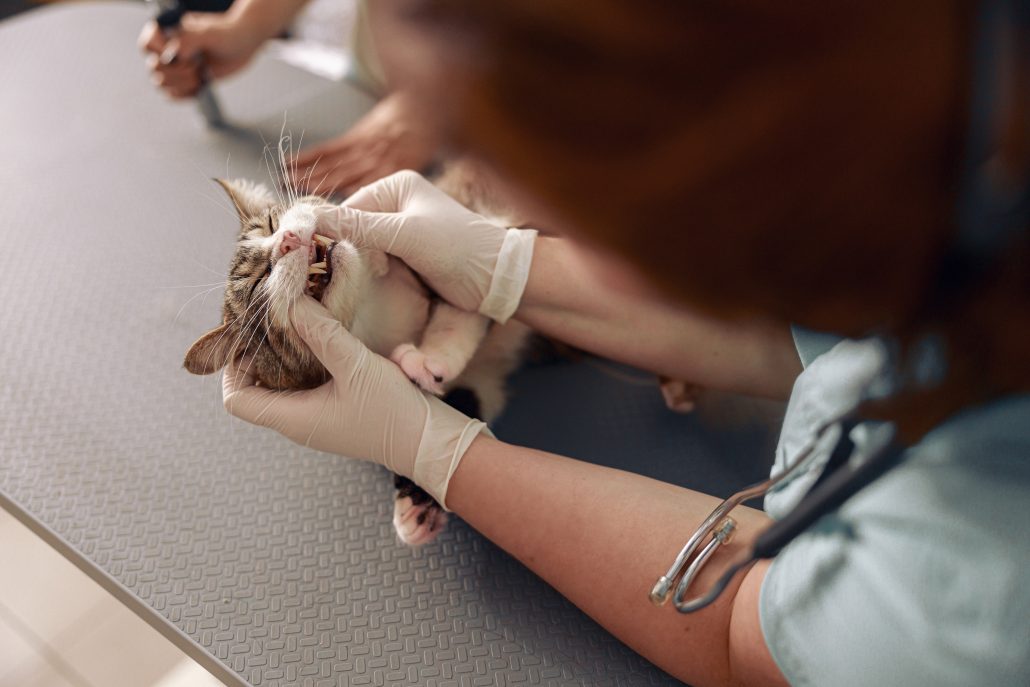
a Lifetime of Radiant Smiles With Cat Dental Care
It goes without saying that dental care is a crucial part of your cat’s well-being, one that can often be overlooked. Dental problems can be painful and lead to more severe health concerns. However, with the information and tips provided in this guide, you’re now well-equipped to take proactive steps to maintain your cat’s radiant smile and overall health!
From regular dental check-ups and dietary advice to emergency appointments and at-home consultations, The House Call Vet is here to help! As a leading vet clinic in Brisbane, our experienced team is dedicated to providing the best possible care for your feline friend. Don’t hesitate to reach out and schedule an appointment today!

